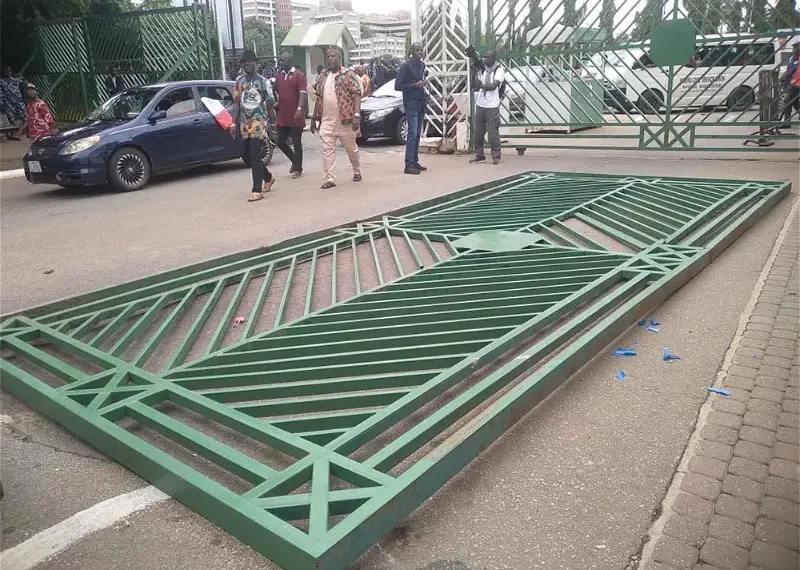Protesters, led by Nigeria Labour Congress (NLC) leader Joe Ajaero and Trade Union Congress (TUC) representative Festus Osifo, gathered at the legislative building requesting security officials to open the gates for dialogue with lawmakers.
When the officials refused, the protesters forcibly brought down the gates and entered the assembly complex. During the protest, Senate Chief Whip Ali Ndume appealed to the labor leaders and protesters to call off the nationwide protest, offering the Senate one week to address their demands.
In Lagos, the NLC demanded a N30,000 subsidy palliative from the state government to alleviate the hardships caused by fuel subsidy removal. Funmi Sessi, Chairman of Lagos NLC, made the demand during a protest where Deputy Governor Kadri Hamzat addressed the crowd.
Sessi emphasized that the current minimum wage was insufficient to meet the needs of the workers, and they required immediate financial support. She urged the state government to provide N30,000 subsidy palliative to workers for the next six months to help them cope with the situation.
The protesters also advocated for affordable healthcare, transportation services for agencies and parastatals, and a dialogue between stakeholders and the state government. They expressed the need for food banks and “stomach infrastructure” to tackle hunger and improve living conditions.
Notably, prominent figures such as human rights lawyer Femi Falana (SAN) and presidential candidate of the African Action Congress (AAC) in the 2023 election, Omoyele Sowore, joined the labor leaders in the Lagos protest.
In summary, the protests were sparked by the removal of fuel subsidies, leading to demands for immediate financial aid, affordable healthcare, better transportation services, and constructive dialogues with the government to address the workers’ concerns.
Read Here: NLC says duration of protest will be determined by response from government










